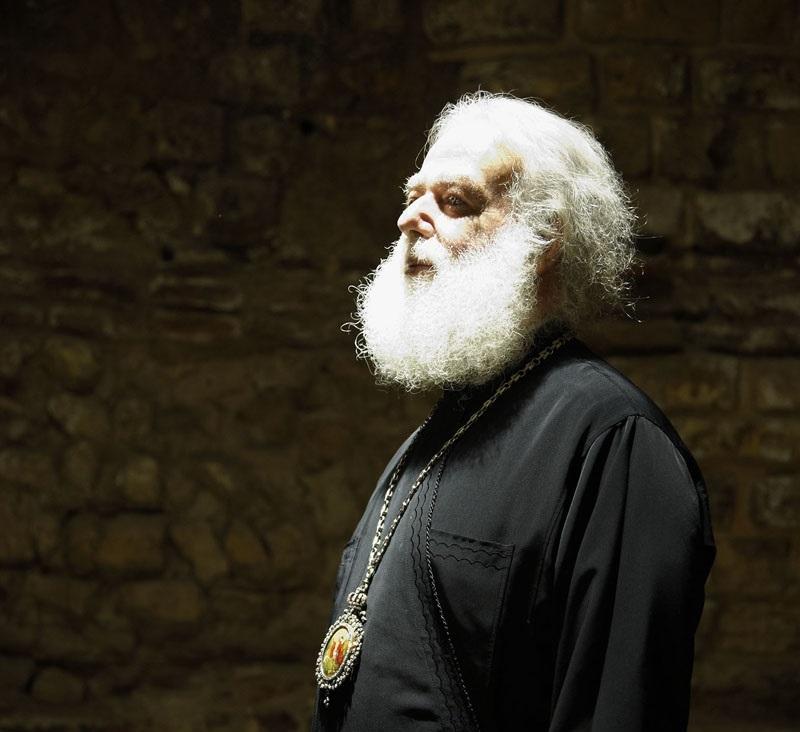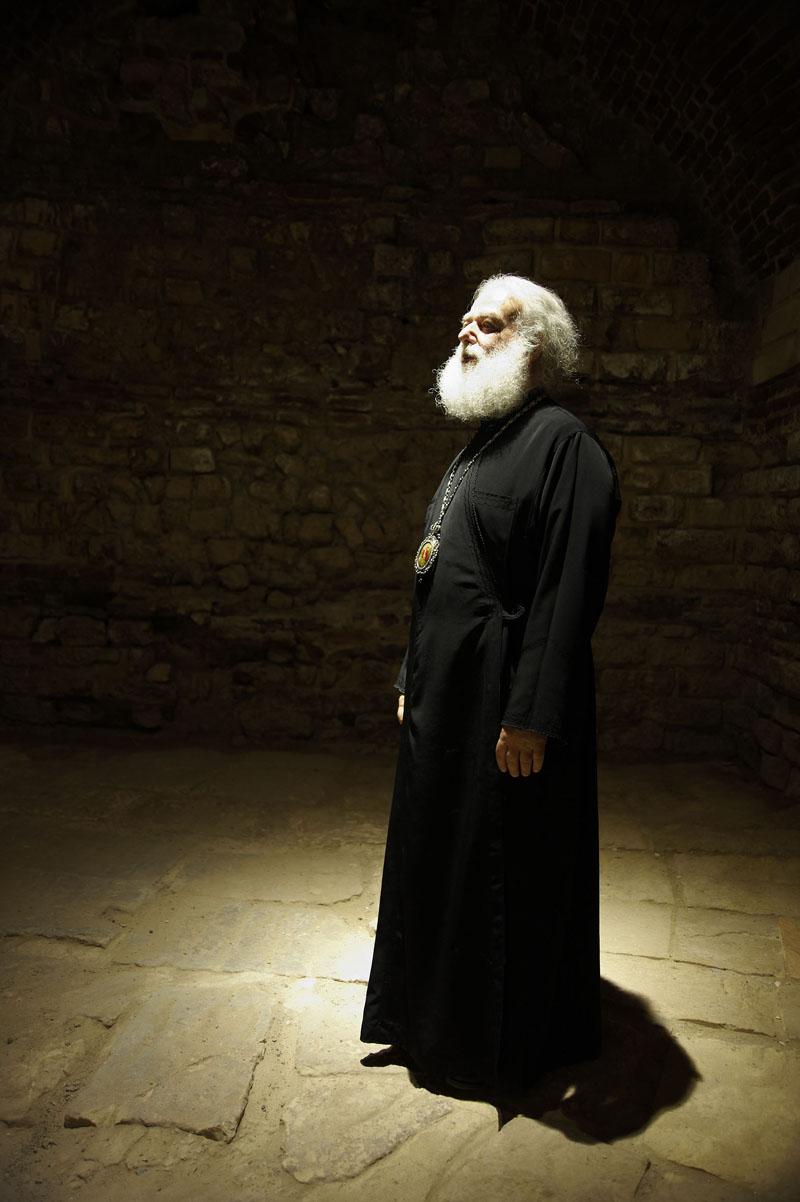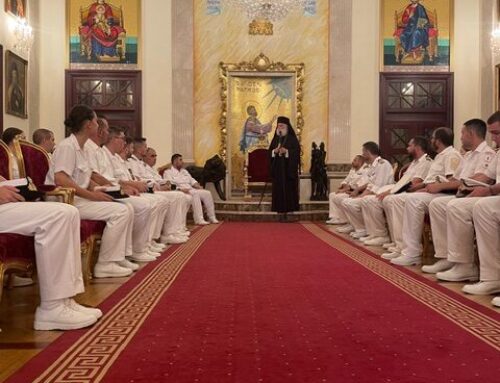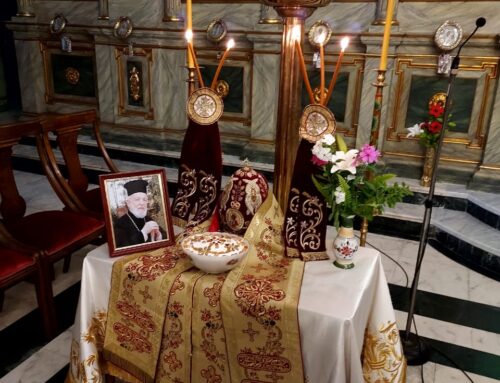The Church of Christ acts within historic time with the aim of encountering the people of the world and to share with them the demands of life, its primary request being the reconciliation of mankind with God and with their fellow human beings. This encounter does not aim for the Church’s conformation with the world, but for the reshaping of the world within a dynamic course to deification (theosis) and the salvation of mankind. A condition for this course is none other than faith in Christ and the acceptance of His redeeming message.
Today, however, in a world that is ceaselessly shaken in a pendulum of discord and conflict – national and international, political and social, ideological and religious – it is with concern that we note a rising doubt in the power of faith to move mountains and to bring peace to God’s creation. We observe today with concern that there is an increase in the lack of faith in the power of forming relationships with our fellow human beings in the standard of God’s relationship with mankind, as it was formed in Jesus Christ, who, “suffered for all mankind, and gave equally to all the hope of the Resurrection” (Maximos the Confessor, Chapters on Love, 71).
The hope and faith in the power of mankind to be reformed in the image of God was recently overshadowed once again. The public beheading of the American journalist James Foley, forced the world to come face to face with the most extreme expression of religious fundamentalism, which in the name of God denies freedom to others and discredits or annihilates human life, when it does not conform to the irrational dictates of religious intolerance. Mankind may well have turned its eyes and pushed this problem casually under the carpet of history, if the global dispersion of jihadists’ intolerance was not menacingly looming out.
Abhorrence for the inhuman practices of the jihadists is justified, but their emergence and spread is not a surprise. This is because fundamentalism flourished on the ground of political authoritarianism, financial deprivation and social destitution. It has created strong pockets in areas of the Middle East and Africa with great geopolitical and energy value, where diachronically the strong powers on earth were not genuinely interested in improving the living conditions of ordinary people. They were only concerned for their own interests, sacrificing social peace on the altar of sectarianism, according to the well known method of divide and conquer.
And now that the snake’s egg has hatched and extreme Islamic fundamentalism has broken the shell of international legality and morality, mankind reacts awkwardly and spasmodically. Of course, Islam is not to be confused with Islamic fundamentalism. Islam as a religious concept and practice is respected. Islamic fundamentalism as a concept and practice of religious superiority which undermines tolerance for diversity is damnable. Our long coexistence with Muslim populations has shown us that the vast majority of Muslims abhor fanaticism and violence in the name of Islam.
It is also averse, though, to the policies which are often drawn up in the great decision-making centers, not only unbeknown to them, but occasionally also to its detriment. Inhabitants of the Middle East and Africa on the whole have not erased from their genetic code the painful memories of colonialism and note with disappointment the colonialism of the past reappearing, yet changed from territorial to economic colonialism. Religious fanaticism comes to capitalize this very feeling of historical injustice which is created by the political and economic amorality of World powers.
Faced with these challenges the Orthodox Church if Africa vigorously continues to preserve and give witness to God’s promise “in Christ through the Gospel” (Ephesians 3:2-6) as a promise of peacemaking between man and his Creator; as a promise of peacemaking between man and his fellow human beings, not only his acquaintances, but also those who are nationally, culturally and religiously foreign to him; as a promise of peacemaking with God’s creation; towards which man ought to be redefined as wise and prudent steward and not as a wasteful and disorganized sovereign.
The Orthodox Church of Africa works sacrificially so that our African brothers and sisters can experience faith in the God of Love as a hope of resurrection, giving meaning to pain, philanthropy and ministry, justice and peace. It clearly proclaims that the problem of extreme fundamentalism will be address only if the root of evil is struck, meaning human suffering. Only when this inducer of fanaticism is struck, will mankind cease to be lured by the sirens of extremism.
So today, on the first day of the new ecclesiastical year, from Alexandria we call on all Orthodox brothers and sisters, wherever they are in Africa and the world, not to lessen their faith in the power of the Grace of God in order to overcome the present difficulties. Not to lessen their faith in the power of God’s Love to nest in the hearts of all. Rejoicing “in the hope of the glory of God” (Romans 5:2), they must not lessen their faith in the word of our Lord “whatever you ask in prayer, believe that you have received it, and it will be yours” (Mark 11:24).
† THEODOROS II
Pope and Patriarch of Alexandria and All Africa
Alexandria, 1st September 2014










